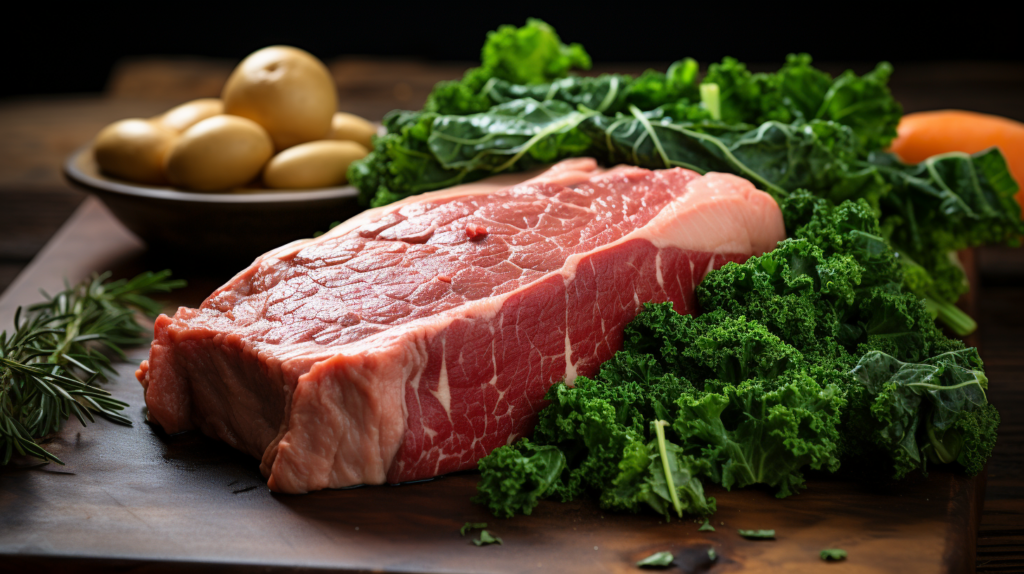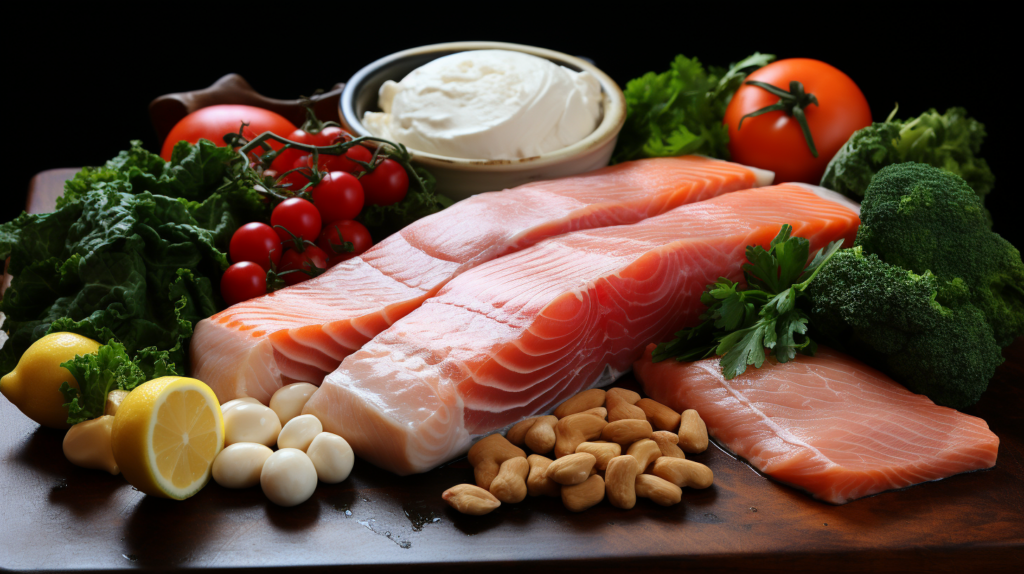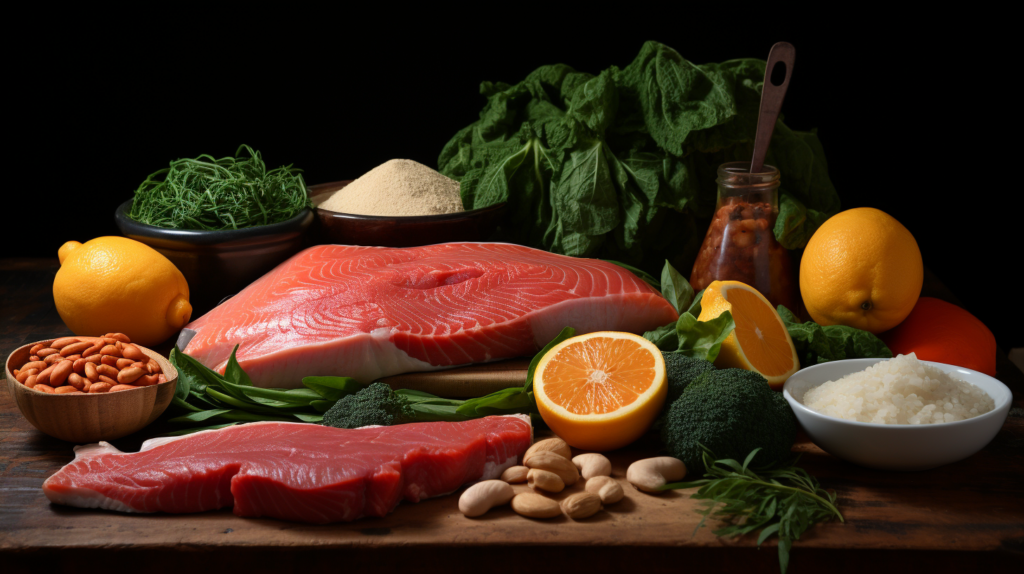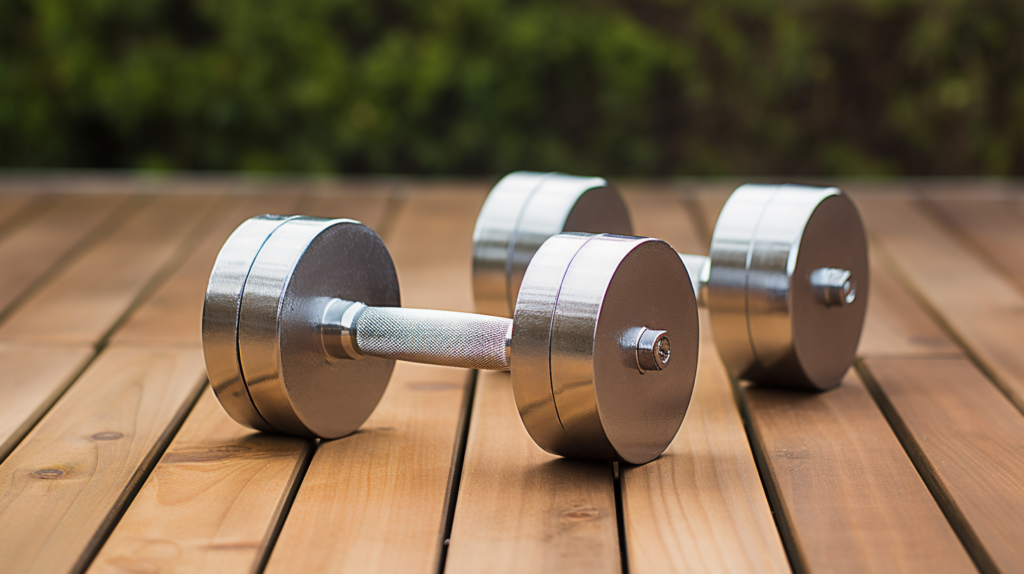Do you often feel tired and lack the energy to get through the day? Iron may be the missing link in your daily life. Iron plays a crucial role in the body as it aids in the production of hemoglobin, a protein that carries oxygen throughout the body. When your body lacks iron, it can lead to fatigue, weakness, and even anemia.
In this article, we’ll explore the importance of iron in combating fatigue and enhancing immunity. We’ll also discuss natural ways to increase iron levels through diet and supplements, provide tips for optimizing iron intake, and address the role of iron in immune function.
Key Takeaways
- Iron is essential for producing hemoglobin, which carries oxygen throughout the body.
- Lack of iron can lead to fatigue, weakness, and anemia.
- We’ll explore the importance of iron in combating fatigue and enhancing immunity.
- Natural ways to increase iron levels include consuming iron-rich foods and taking supplements.
- Optimizing iron intake can help prevent tiredness, and iron also plays a role in immune function.

Understanding the Link Between Iron and Fatigue
Do you often feel tired and lack energy for your daily activities? Fatigue is a common complaint, but did you know that iron deficiency could be a cause? Iron is an essential mineral that plays a crucial role in energy production and red blood cell formation. When your body lacks iron, it struggles to transport oxygen to your cells, leading to fatigue.
If you experience persistent fatigue that doesn’t improve with rest or lifestyle changes, it’s essential to check your iron levels. Fortunately, addressing iron deficiency can often improve fatigue and restore your energy levels.

Natural Ways to Increase Iron Levels
If you’re looking to increase your iron intake naturally, there are many iron-rich foods you can add to your diet. These foods not only help combat fatigue, but also provide a range of other health benefits.
| Food | Iron Content (mg) |
|---|---|
| Red meat (beef, lamb, pork) | 2.0-3.5 mg per 3 oz serving |
| Poultry (chicken, turkey) | 0.8-1.5 mg per 3 oz serving |
| Seafood (oysters, clams, tuna, salmon) | 0.5-3.0 mg per 3 oz serving |
| Beans and legumes (lentils, chickpeas, kidney beans) | 2.0-4.0 mg per 1/2 cup serving |
| Nuts and seeds (pumpkin seeds, cashews) | 1.0-2.5 mg per 1/4 cup serving |
| Dried fruit (raisins, apricots) | 0.5-1.5 mg per 1/2 cup serving |
| Leafy greens (spinach, kale, collard greens) | 3.0-6.0 mg per 1/2 cup serving |
Note that while plant-based sources of iron are generally less absorbable than animal-based sources, consuming vitamin-C rich foods alongside iron-rich foods can increase iron absorption.
Incorporating these iron-rich foods into your meals can help optimize your iron intake and combat fatigue.

Optimizing Iron Intake for Energy
To optimize your iron intake for energy, it is important to have a balanced and nutritious diet that includes foods rich in iron. The recommended daily intake of iron for adult men and women is 8mg and 18mg, respectively.
You can increase your iron consumption by incorporating more iron-rich foods into your diet. Some examples include:
| Food | Iron content (mg/serving) |
|---|---|
| Red meat (3 oz) | 2.5-3.0 |
| Poultry (3 oz) | 0.5-1.0 |
| Seafood (3 oz) | 0.5-3.0 |
| Lentils (1 cup) | 6.6 |
| Spinach (1 cup) | 6.4 |
| Tofu (½ cup) | 6.6 |
It is also important to combine iron-rich foods with sources of vitamin C, such as citrus fruits, tomatoes, and bell peppers, to enhance iron absorption. Conversely, avoid consuming iron-rich foods with coffee or tea, as the tannins in these beverages can inhibit iron absorption.
When planning your meals, aim for a variety of foods that provide iron and other essential nutrients. You can consult with a registered dietitian or nutritionist to help create a balanced and iron-rich meal plan that fits your lifestyle.

The Role of Iron Supplements in Boosting Energy
If you’re struggling with fatigue despite incorporating iron-rich foods into your diet, you may need to consider taking iron supplements. Iron supplements can help increase your iron levels and provide a boost of energy when fatigue is affecting your daily life.
When taking iron supplements, it’s important to speak with your healthcare provider to determine the proper dosage and to rule out any underlying health conditions that may be causing your fatigue. It’s also crucial to follow the dosage instructions carefully, as taking too much iron can lead to negative side effects such as constipation, nausea, or even iron toxicity.
There are several different types of iron supplements available, including ferrous sulfate, ferrous fumarate, and ferrous gluconate. Each type may have different absorption rates and side effects, so it’s important to choose the one that works best for you.
While iron supplements can be effective in boosting energy levels, they should not be used as a substitute for a balanced diet rich in iron. Instead, they should be used as a complementary tool to provide extra support for those struggling with iron deficiency or fatigue.
Remember, it’s crucial to prioritize natural ways to increase iron levels first, such as incorporating iron-rich foods into your diet and optimizing your intake for maximum absorption. But when fatigue persists, iron supplements can be a helpful addition to your overall health regimen.

Best Sources of Iron for Preventing Tiredness
To combat fatigue and optimize your energy levels, it’s essential to consume foods that are rich in iron. Here are some of the best sources of iron:
| Food | Iron Content (mg) |
|---|---|
| Beef liver | 5.8 |
| Spinach | 2.7 |
| Oysters | 5.7 |
| Black beans | 1.8 |
| Quinoa | 2.8 |
| Dark chocolate | 3.3 |
Other iron-rich foods include fortified cereals, lentils, tofu, pumpkin seeds, and dried apricots. To increase your iron intake, incorporate these foods into your meals on a regular basis.
It’s important to note that the body more readily absorbs heme iron, which is found in animal-based foods such as beef, chicken, and fish. Non-heme iron, found in plant-based foods, is less easily absorbed. However, you can enhance your absorption of non-heme iron by consuming vitamin C-rich foods with your iron-rich meals.
For example, squeeze lemon or lime juice over your spinach and black bean salad, or add tomato sauce to your lentil soup. The vitamin C helps the body absorb the non-heme iron more effectively.

Tips for Improving Iron Absorption
To maximize the absorption of iron in your body and combat fatigue, consider the following tips:
- Eat iron-rich foods with vitamin C: Vitamin C helps the body absorb iron. Add fruits like oranges, kiwis, and strawberries, or vegetables like broccoli and bell peppers to your iron-rich meals.
- Avoid drinking tea or coffee with meals: Tannins in these beverages can inhibit iron absorption. Drink them in between meals instead.
- Cook in cast-iron pans: Cooking acidic foods in cast-iron pans can increase the iron content of the food.
- Avoid consuming calcium-rich foods or supplements with iron-rich meals: Calcium can interfere with iron absorption, so avoid consuming calcium-rich foods or supplements with iron-rich meals or supplements.
- Consider taking iron supplements: Taking iron supplements with vitamin C can help enhance iron absorption. However, it’s important to talk to your doctor before starting any supplement regimen.
By implementing these tips, you can help optimize your body’s absorption of iron and combat fatigue naturally.

Iron Deficiency and Fatigue
If you’re experiencing unexplained fatigue, iron deficiency may be the culprit. Iron is a vital mineral that helps transport oxygen throughout the body, and without enough iron, your body can’t produce enough healthy red blood cells to carry oxygen to your tissues and organs. As a result, you may feel tired, weak, irritable, or have trouble concentrating.
Iron deficiency is particularly common in women who are pregnant, breastfeeding, or have heavy periods, as well as in vegetarians and vegans who may not consume enough iron-rich foods in their diet. However, iron deficiency can affect anyone and may go unnoticed for years if left untreated.
The good news is that iron deficiency can be easily corrected through natural methods, including dietary changes and supplements.
By increasing your iron intake through iron-rich foods, you can help combat fatigue and improve your overall energy levels. Some of the best plant-based sources of iron include spinach, tofu, lentils, kidney beans, and fortified breakfast cereals. Animal sources of iron include red meat, poultry, fish, and eggs.
In addition to incorporating iron-rich foods into your diet, there are also certain dietary strategies that can help optimize iron absorption in your body. For example, pairing iron-rich foods with foods high in vitamin C, such as citrus fruits, bell peppers, and tomatoes, can help improve iron absorption. On the other hand, consuming foods that inhibit iron absorption, such as tea and coffee, with iron-rich meals can reduce the amount of iron your body absorbs.
If you suspect that you may have iron deficiency, it’s important to speak with your healthcare provider to get a proper diagnosis and treatment plan. Your provider may also recommend iron supplements if your iron levels are severely low or if you’re unable to get enough iron through your diet alone.
Overall, maintaining adequate iron levels is essential for combating fatigue and maintaining overall health and vitality. Incorporating iron-rich foods into your diet and maximizing iron absorption through dietary strategies can help ensure that your body is getting the iron it needs to function at its best.

The Immunity-Boosting Benefits of Iron
Iron not only plays a crucial role in combating fatigue, but it also has immunity-boosting benefits. Studies have shown that maintaining adequate iron levels can help strengthen the body’s defenses against illnesses and infections.
Iron is essential for the development and proliferation of immune cells, such as lymphocytes and natural killer cells. These cells are critical for fighting infections and keeping the body healthy. Iron also plays a role in the production of antibodies, which are proteins that help protect the body against harmful pathogens.
In addition, iron helps regulate the production of cytokines, which are proteins that help regulate immune responses. This helps ensure that the body’s immune system responds appropriately to different types of infections and diseases.
Therefore, incorporating iron-rich foods into your diet can help improve your overall immunity and reduce your risk of infections. Some examples of iron-rich foods include red meat, poultry, fish, beans, lentils, fortified cereals, and leafy green vegetables.
Remember to pair iron-rich foods with vitamin C-rich foods, such as citrus fruits, tomatoes, and bell peppers, to enhance iron absorption. And if you suspect that you may have an iron deficiency, speak with your healthcare provider to determine the best course of action.

Conclusion
Now that you know how important iron is for combating fatigue and enhancing immunity, it’s time to take action and nourish your body with this essential mineral. Remember to incorporate iron-rich foods into your diet, optimize your iron intake for energy, and consider iron supplements if necessary. By improving your iron levels, you can reduce tiredness, improve your vitality, and strengthen your immune system. Start making small changes today to support your overall health and well-being.
FAQ
Q: How does iron naturally combat fatigue and enhance immunity?
A: Iron plays a crucial role in combating fatigue and enhancing immunity. It helps transport oxygen throughout the body, providing energy and reducing tiredness. Additionally, iron supports immune function, helping the body fight off illnesses and infections.
Q: What is the link between iron and fatigue?
A: Iron deficiency can lead to fatigue as it impairs the body’s ability to produce enough red blood cells, which are responsible for carrying oxygen. Ensuring adequate iron levels in the body is important for reducing tiredness.
Q: What are some natural ways to increase iron levels?
A: You can increase iron levels naturally by incorporating iron-rich foods into your diet. Examples include leafy greens, red meat, beans, and fortified cereals. Cooking techniques that enhance iron absorption, such as pairing vitamin C-rich foods with iron-rich foods, can also help.
Q: How can I optimize my iron intake for energy?
A: To optimize iron intake for energy, aim to consume the recommended daily iron intake through a well-rounded, iron-rich diet. Combining iron-rich foods with vitamin C sources can enhance absorption. Planning meals that incorporate a variety of iron sources can also help ensure adequate intake.
Q: Can iron supplements boost energy?
A: Iron supplements can help boost energy levels if you have an iron deficiency. However, it is important to consult with a healthcare professional before taking iron supplements, as excessive iron levels can be harmful.
Q: What are the best sources of iron for preventing tiredness?
A: The best sources of iron for preventing tiredness include foods such as lean meats, seafood, spinach, lentils, and fortified cereals. These sources provide varying amounts of iron, making it easier to meet your daily needs.
Q: Are there any tips for improving iron absorption?
A: Yes, there are several tips for improving iron absorption. Consuming vitamin C-rich foods, avoiding calcium-rich foods during iron-rich meals, and cooking foods in cast-iron cookware can enhance iron absorption. However, it’s important to note that certain factors, like tea and coffee consumption, can inhibit iron absorption.
Q: What is the relationship between iron deficiency and fatigue?
A: Iron deficiency can contribute to fatigue as it leads to a reduced supply of oxygen to the body’s tissues. If you experience persistent fatigue, it’s important to consider iron levels and address any deficiencies through natural methods.
Q: How does iron enhance immunity?
A: Iron plays a role in immune function by supporting the production and activity of immune cells. Maintaining adequate iron levels can help strengthen the body’s defenses against illnesses and infections.














